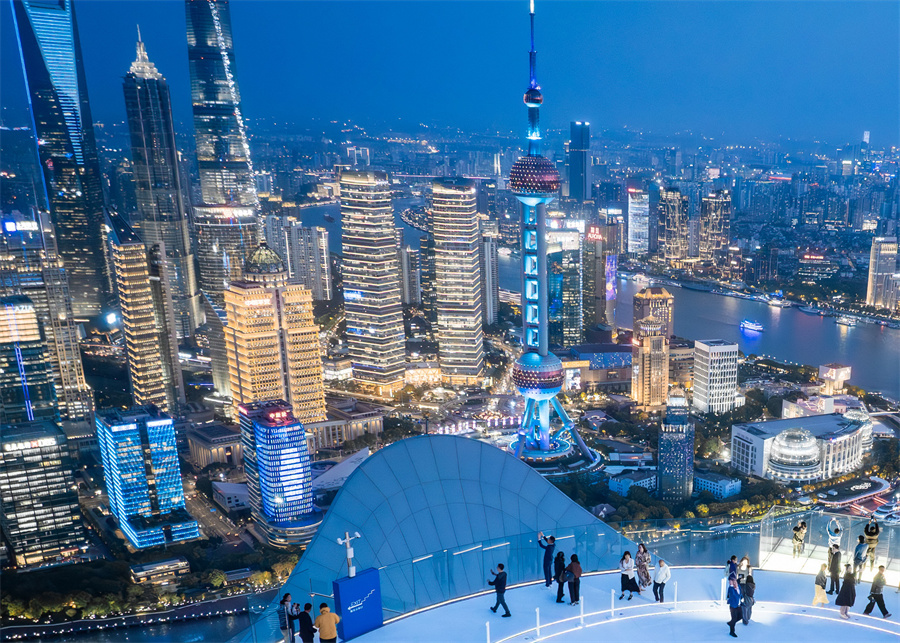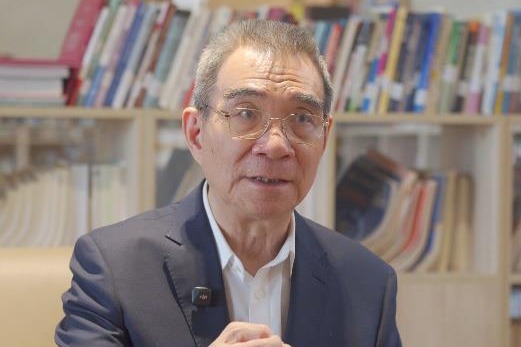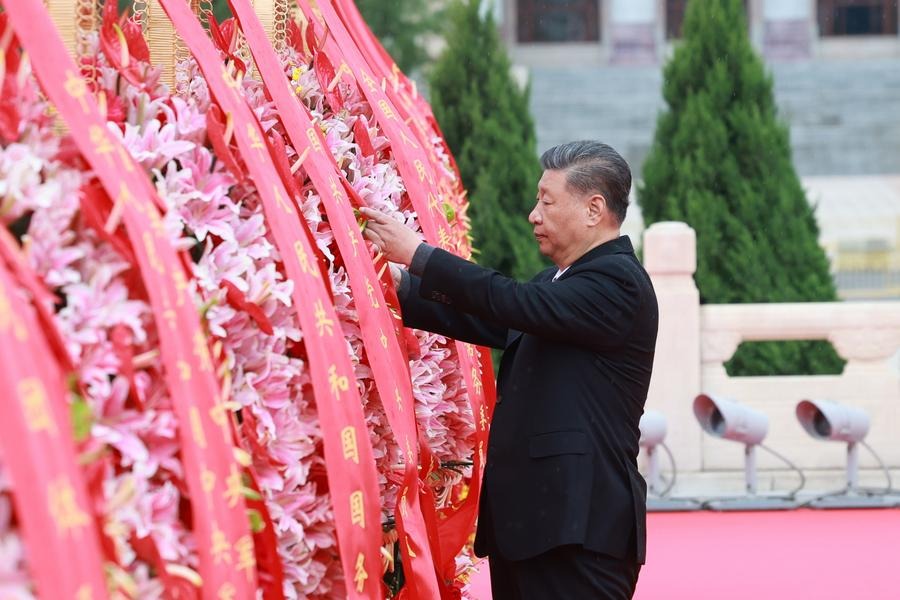Despite turbulence, foreign firms keen on investment
Shanghai in particular major draw for setting up regional headquarters


The provisions to promote the development of free-trade accounts in Pudong, which were passed in late March, have addressed companies' frequently raised requests related to areas such as capital businesses, loans provided for overseas entities' mergers and retail businesses under the FT account.
Taking effect on Thursday, the provisions mark China's first local regulation specially promulgated for FT account businesses.
For years, Pudong has served as a pioneer for various groundbreaking cases of reform and opening-up. Among the 300 reform attempts which were first piloted in China's FTZs and then promoted nationwide, half of them were launched in Pudong, said Gu Jun, director of the Shanghai Municipal Development and Reform Commission.
Thanks to the amiable business environment, about 484 foreign firms had set up their regional headquarters in Pudong as of end-February, making up 47.1 percent of the city's total for MNCs' regional headquarters. Pudong is also home to the regional R&D centers of 283 multinational companies, accounting for 47.4 percent of the total number in Shanghai.
Multinational companies' commitment to Pudong is a snapshot of the huge potential of the Chinese market.
Otis Worldwide Corp moved its China headquarters to Pudong at end-March. The US elevator manufacturer's largest R&D center is located in Shanghai.
"China takes the world's lead in terms of the number of elevator installations and usage. There are over 350,000 elevators installed in Shanghai. But at the same time, there were about 1 million elevators which had been used for at least 15 years in China last year, and the number will continue to grow. As China's urban renewal advances and the application of smart urban technologies deepens, the country will show rising demand for the renewal and upgrade of large equipment," said Sally Loh, president of Otis China.
The rapidly developing clean energy sector in China and the huge amount of investment in energy-saving and emission-reducing technologies have led to rising demand for hyper compressors, said Li Simin, China president for Switzerland-based Burckhardt Compression.
At present, about 40 percent of the group's sales revenue comes from China. As for a new order that Burckhardt will take around June, the company will strive for local production, said Li.
"The longer term objective is to realize local R&D and production of hyper compressors in China within the next two to three years. The goal can be attained thanks to China's large market size, adequate talent supply and complete industrial chains. Burckhardt will step up investment in China, from where we will export more," he said.
But of course, companies cannot turn a blind eye to the impact of the sweeping tariffs. Bai Binyi, executive vice-president of business group electronics China for German auto electronics giant Forvia Hella, said the company will accelerate the localization of chip purchases and applications in China. While they began last year to use as many China-produced chips as possible, such localization will speed up significantly in the next few years.
"China's opening-up is institutional, predictable, on-going and consistent, which is vital for multinational companies to make long-term plans. It is for this reason that we have continued to expand our R&D and production capacity and extend our distribution network in Pudong," he said.
Shen Liangyu, China president of German auto parts supplier Mahle, said the company has seen 90 percent of their production localized in China prior to the recent tariff hikes initiated by the United States. But some products had to be imported either due to patent reasons or to client requests. Under current circumstances, clients are willing to go for localized procurement, which Mahle has been advancing for years.
"China has existing supply chains. Now is a good time for us to make the switch. It is also a good opportunity to transform risks into opportunities," she said.
According to Chen of Louis Dreyfus, companies are looking for the biggest certainty to draft and conduct their long-term strategies in the current complex and highly unpredictable global landscape.
"The large market size of China and the country's pace in technological advancement are the biggest certainties," he said.
























